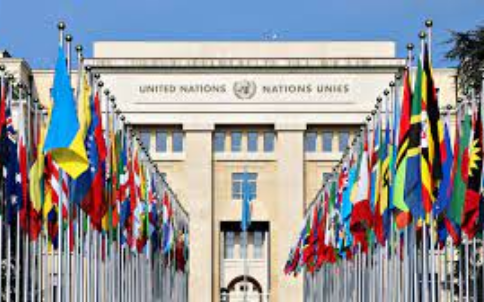- Some countries have unwarranted veto powers
- The UN is in tight position due to Russia-Ukraine war
Russia’s war against Ukraine brought the role of UN into sharp focus once again in the international affairs and security and peace. Started in 1945 after the Second World War, the UN proved itself as a successful and strong successor of the failed League of Nations. Its journey from 1945 to 1970’s was very commendable. Success stories in Korea and Congo lent to its heightened international image and relevance. However, within 25 years of its formation it was placed at the cross road as it could not stem the rot and solve the problems of the World which lied dormant due to cold war. Yet, its objectives are laudable. Apart from peace and security it is poised to address a wide gamut of objections like developing friendly relations among nations promoting social progress better lining stewards and human rights.
Also read: STRANGE PREDICAMENT OF CONGRESS PARTY
Started with 51 members, The UN has 183 sovereign nations as its members today. The judicial nature of sovereign equality and collective security is embedded in the main principles of UN. The UN charter clearly laid that the primary objective of UN is to ensure protection of succeeding generations from aggression and on slaughter of War. The principle of sovereign equality and collective security are cleanly bowled out in the present Russia- Ukrainian War. The UN remained helpless.
Glaring inequality
The aftermath of Second World War and the subsequent formation of UN saw several treaties and agreements between sovereign countries for security and warding off aggression by one nation against the other. Yet the rich and most powerful P5 countries- China, Russia, The United States, France and United Kingdom on one side and other countries on the other side showed an extreme cleavage and glaring inequality. In 1986 the US refused to pay 50% of its growing influence of newly emerging nations or their attempts to influence. The US contested that 85% of the UN budget was paid by only 20 nations while many other smaller nations claim to have a definite say in the matters even when their contributions are insignificant. Several of the incidents and the present Russian war clearly point to the rise of a new World order.
Also read: Higher Education not merely a retail trade in knowledge
Need to democratise the UN
For a long time, some countries including India are voicing the demand for revamping and truly democratising UN. The VETO Powers abrogated to a few nations warrant re-examination in order to imparting democratic ethos and practice in the UN as collective World Organisation. The issue of voting rights of the nations have to be justiciable worked out in the larger interest. But, this is not an easy task because of the inherent constraints. The Ukraine devastation clearly shows once again the need for above. Yet another important aspect that is direly needed to be addressed is maintenance of a genuine o consensuses on main principles of democracy and its functioning. Unless these two are considered in right earnestness the world community’s and UN security council’s decisions are many a time rendered teeth less. Secretary General of UN,kofi Annan felt that time was ripe to have a hard look at fundamental policy issue and at the structural changes that may be required in order to strengthen them. Thus he aired his opinion for ‘A Radical Reform’ of UN and subsequently powered committee was entrusted with the job of recommending changes needed. The Secretary General acknowledged that UN did not meet the needs of its members, including the United States.
Also read: Getting Down to Serious Business of Food Security in Jammu & Kashmir
Isamophobia
Despite the fact that UN has a large infrastructure and expert manpower, individual nations often influence the decisions of UN as could be seen in several instances like Covid-19 vaccine or passing resolutions of the UN General Assembly. One of such recent episode reported in media is the adoption of a resolution to proclaim March 15 as “International Day to combat Islamophobia” India’s ambassador in UN was reported to have expressed concern for religion being elevated to level of International Day. It is true one has to wait and see how many religions phobia days will be christened in the series during coming years by UN. As the Indian ambassador pointed Christian phobia or Islamophobia and such phobias were not restricted to Abrahamic religions only.
Spending its energies on trivia, UN is missing forest for tress.
Also read: “MIDDLE-PATH WAY”IS THE BEST APPROACH




